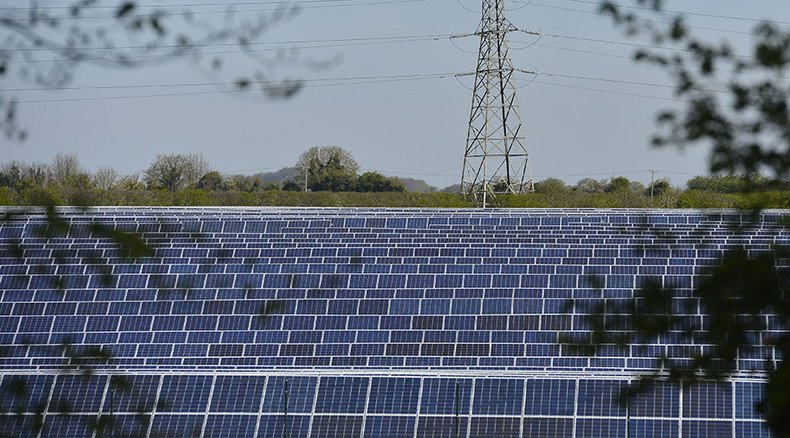Britain’s green energy cuts ‘perverse’ - UN environment scientist

A prominent UN environment scientist has slammed the UK government’s “perverse” cuts to the renewable energy sector ahead of a key global climate change summit in Paris.
Jacqueline McGlade said Britain’s decision to reverse support for wind and solar power is at odds with pledges made by nearly 150 countries for the Paris summit, where they are seeking to announce a deal on climate change in December.
McGlade, a former head of the European Environment Agency and chief scientist at the UN environment program, said fossil fuels are being supported, while government actions are discouraging investment in renewables.
“What I’m seeing worldwide is a move very much towards investment in renewable energy. To counterbalance that, you see the withdrawal of subsidies and tax breaks for fossil fuels,” McGlade told the BBC.
“What’s disappointing is when we see countries such as the United Kingdom that have really been in the lead in terms of getting their renewable energy up and going – we see subsidies being withdrawn and fossil fuel industry being enhanced.”
Since the general election in May, the Conservative government abruptly ended subsidies for onshore wind power and large scale solar projects on the grounds they had driven down the cost of renewable energy too much.
As a result of the cuts, Britain dropped out of the top 10 of an international table on renewable energy published by consultancy EY in September.
An EY analyst said “investors are scratching their heads” to understand the government’s policies, which caused the UK to fall from eighth to 11th place.
EY corporate finance leader Ben Warren told the Guardian at the time that cuts to green energy subsidies were “reactionary.”
“From 2000 to 2003 we went through some very significant reforms; the government at the time was a huge buyer of evidence to support the UK energy market in the long-term. Now we seem to be having very reactionary policies being made almost in isolation of any evidence.”
The Department of Energy and Climate Change (DECC) said the UK government is committed to a signing a deal at the meeting.
“We are absolutely committed to getting a global deal in Paris, which will create a level playing field for businesses, driving innovation and growing the low carbon economy,” the department said.
The DECC said government-backed measures had driven down the cost of renewable energy significantly and led to more subsidies to the renewables industry than original anticipated.
“Ensuring subsidies are used where they are needed most, so they can compete with other technologies, provides the best value for money for hardworking bill payers,” it added.
The UK sourced 15 percent of its electricity from renewables in February this year, according to the Office of National Statistics.
Germany leads the way in Europe for green energy, with an average of 28 percent of the country’s electricity coming from clean sources such as wind, solar, biomass and hydropower.
The UK government’s cuts come ahead of the Paris Climate Change Conference in December, the goal of which is to achieve a legally binding agreement to reduce greenhouse gas emissions.












